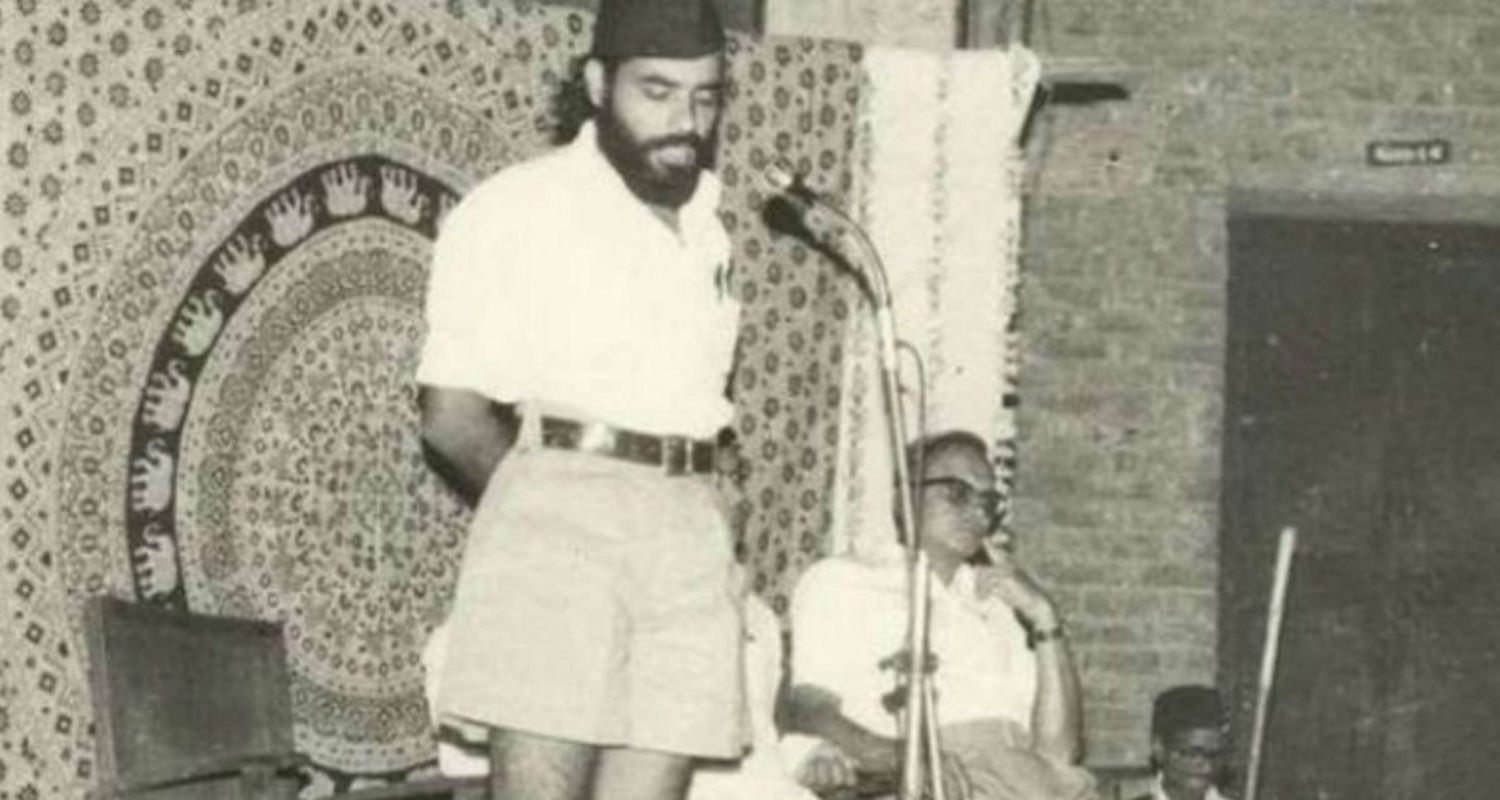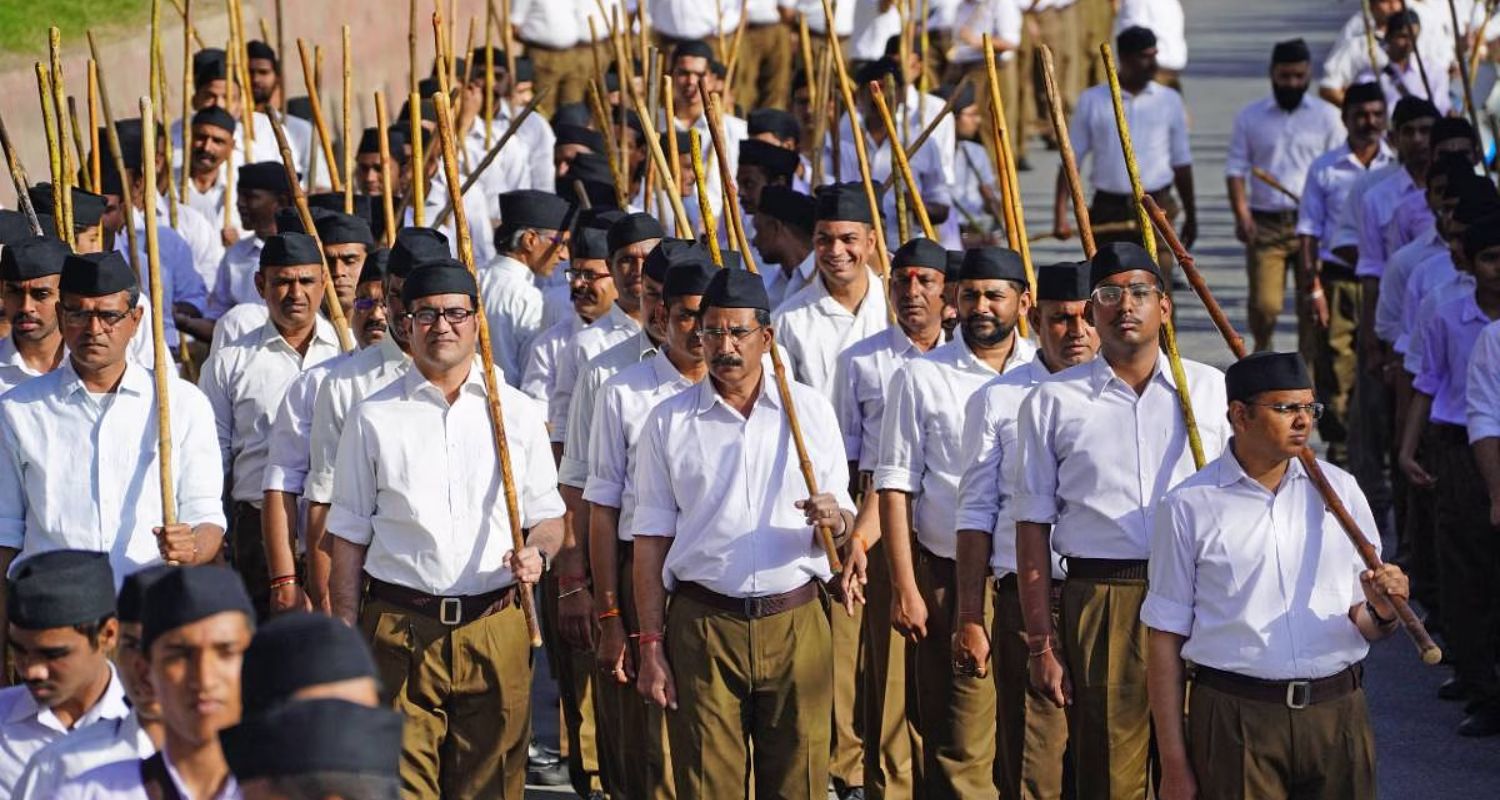During his Independence Day speech, Prime Minister Narendra Modi specially praised the Rashtriya Swayamsevak Sangh (RSS) for its “resolve of nation building through character building.” PM Modi has himself been the product of the RSS and he mentioned this fact with genuine pride.
It was indeed a moment of great and well-deserved acknowledgement for an organisation that has silently worked for the last hundred years for nation-building without any expectation of rewards and honours. Barring a very few RSS volunteers like Prime Minister Modi, who get deputed to the BJP, there are lakhs and lakhs of others who work silently and anonymously. For them, their work is both worship as well as reward.

It was for the first time that the organisation, which has an unparalleled contribution in building up a nationalist sentiment across the country, was acknowledged for the first time from the ramparts of the Red Fort by the Prime Minister of the country. It was a well-deserved acknowledgement indeed.
“A hundred years ago, an organisation was born: the Rashtriya Swayamsevak Sangh. These hundred years of service to the nation constitute a very proud and glorious chapter. With the resolve of ‘nation building’ through ‘character building’, with the aim of serving Maa Bharati (Mother India), the ‘swayamsevaks’ (RSS volunteers) have, for a century, dedicated their lives to the welfare of the motherland,” Prime Minister Modi said in his speech.
Referring to the selfless service of the RSS to the nation, he noted, “Service, dedication, organisation and unmatched discipline - these have been its hallmarks. In a sense, the Rashtriya Swayamsevak Sangh is the world’s largest NGO, with a century-long history of devotion.”
“Today, from the ramparts of the Red Fort, I salute all the ‘swayamsevaks’, who have contributed to this century-long journey of national service, and the nation takes pride in this grand and dedicated journey of the Rashtriya Swayamsevak Sangh, which will continue to inspire us,” the Prime Minister remarked.
This was obviously a snub to the Congress leaders, the Leader of Opposition Rahul Gandhi in particular. Gandhi has often been accusing the RSS of playing divisive politics. This is followed up by other Congress leaders who find a soft target in the RSS, accusing it of “communalism”, although there is no evidence so far of the RSS, as an organsation, having been involved in any riots or acts of violence anywhere across the country. The RSS indeed does believe in a strong India and has been a staunch votary of Hindutva as the central cultural integrating force for uniting the country.
The RSS during the last century has emerged as one of the largest NGOs in the world. Unconfirmed reports suggest it to be the “largest in the world.” It has an estimated membership of about “fifty lakhs” volunteers. The RSS organises about 75,000 ‘shakhas’ (morning and evening drills) every day in about 45,000 places across the country.
The RSS, like the Congress, believes in a particular worldview. In fact, the RSS worldview is similar to that of the Congress during the freedom struggle. Like the Congress had nationalism as its core ideological plank for anything and everything, so it is for the RSS now. During the freedom struggle, the only aim of the Congress was to throw the British out. At that time, the party was not doing it to win elections. Similarly, the RSS wants to build up a strong nation through “cultural integration” based on rich and glorious Indian culture, something Pandit Jawaharlal Nehru emphasised in his book The Discovery of India.
Rahul Gandhi has been unnecessarily and unjustifiably dragging the RSS into his criticism. He is certainly entitled to his views and opinions about anything and everything, yet he should rethink to identify his targets. His criticism of the ruling BJP is understandable, but not that of the RSS. The BJP may be deriving its strength and power from the RSS, but they are two different entities, which Gandhi is mistaking to be “one.”
There is another “circumstantial similarity” between the pre-Independence Congress and the RSS. During the freedom struggle, since the early twentieth century, after the onset of the Khilafat Movement, the majority of Indian Muslims distanced themselves from the Congress and started inclining towards the All India Muslim League. By 1947, the Congress had become a pariah for an overwhelming majority of Indian Muslims, who would describe it, in Jinnah’s words, as a “Hindu communalist party.” This was also reflected during the elections under British rule where the Muslim League won almost all the seats reserved for the Muslims, while the Congress would draw a blank.
This is exactly how an overwhelming majority of the Muslims across India treats the BJP now, as the Muslims before Partition treated the Congress. No doubt a majority of Muslims in India today are supporting the Congress and the reasons are not very difficult to understand, as they believe that only the Congress can defeat the BJP, which has a different worldview about nationalism from the Congress.

There is a section of people/leadership within the Congress which does not favour blatant and aggressive criticism and condemnation of the RSS by the party leaders. It is the same section of people Rahul Gandhi always refers to as the BJP/RSS “moles.” But Gandhi has his own reasons to be so vocal and aggressive against the RSS, as it appeals to a particular section of people across the country. That is the reason Gandhi and his party kept quiet when Udhayanidhi Stalin compared Sanatan Dharma with malaria and called for wiping it out. Imagine if similar comments were made against any other religion, hell would have broken loose and Gandhi and the Congress would have made heavens fall.
It is difficult to expect the Congress and Rahul Gandhi to rethink their approach towards the RSS for obvious reasons, lest they alienate the “particular section of voters” they feel completely dependent on. Every Hindu in India may not necessarily be a supporter of the RSS, but most of them do believe that the RSS is doing a great job, as Prime Minister Modi remarked, “of nation building through character building.”
At least, the Congress and its leadership can be rational in their criticism of the RSS. Criticising and condemning the RSS just because it is the ideological fountainhead of the BJP and its source of strength and power is not justified.



